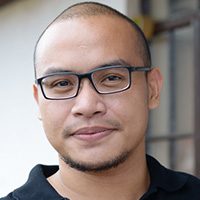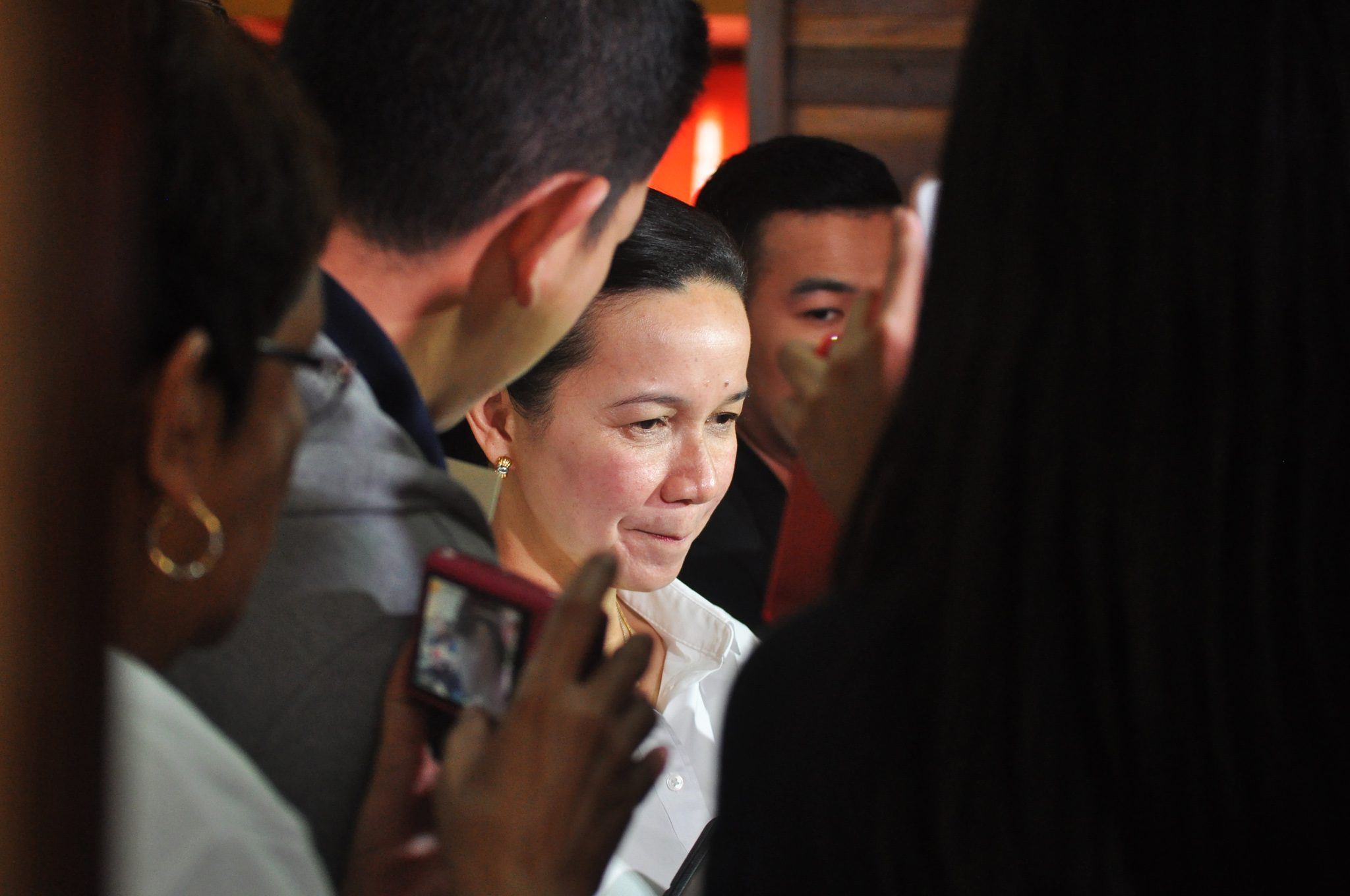SUMMARY
This is AI generated summarization, which may have errors. For context, always refer to the full article.

(Last of 2 parts)
1st part:
Comelec should have dismissed Tatad’s case vs Grace Poe
Aside from the procedural anomalies committed by the Commission on Elections (Comelec) First Division in handling the disqualification complaint of former Senator Francisco Tatad against presidential aspirant Grace Poe, there are 3 substantial issues on which the poll body erred.
On jurisdiction
The Comelec premised its inquiry on its claim that it has “constitutionally granted power and duty to inquire into and examine the qualifications of the candidates and to determine whether or not there is a commission of material misrepresentation.”
Obviously, this is inaccurate. Under the 1987 Constitution, Comelec’s jurisdiction to inquire into “qualifications” are confined post-election to “elective regional, provincial, and city officials.” Under the same Constitution, the jurisdiction over “qualifications of the President” is vested solely and exclusively with the Presidential Electoral Tribunal (PET).
Let me repeat that the authority of the Comelec to entertain a Petition to Deny Due Course under Section 78 of the Omnibus Election Code has never been intended to be an inquiry into the qualification of presidential candidates per se, but whether there is a deliberate attempt to commit a misrepresentation over a qualification.
It should be further clarified that the determination of qualification in a Deny Due Course proceeding is merely provisional for the exclusive purpose of determining if there is bad faith on the part of the candidate. It will not bar or prejudice a later action for Quo Warranto action before the PET.
On residency
The First Division, after an exhaustive discussion on the use of Poe’s passport and other facts, came out with a surprising conclusion:
“We find that Respondent’s intention to reestablish her domicile of origin was manifest only when the Commission on Elections registered Respondent as a voter of Brgy. Sta. Lucia, San Juan City, on 31 August 2006. The act of registering as voter in Brgy. Santa Lucia in San Juan City is an indicia of Respondent’s intent to remain in the Philippines after she regained her Filipino citizenship. Thus, on this score, Respondent’s period of domicile in the Philippines must be counted only starting 31 August 2006.”
I am curious about the legal basis that would support this conclusion. But in view of the Supreme Court’s criteria on establishing domicile, I cannot subscribe to the division’s idea that a singular act would be sufficient to establish residence. Normal human experience teaches us that transfer of residence or domicile is more of a “process.” Anyone who has relocated or transferred residence would know that it takes long and gruelling preparation – emotional, logistical, physical, and even legal – prior to the actual physical transfer. It does not and cannot happen at a single instance.
Thus, in Mitra v. COMELEC (GR Number 191938, July 2, 2010), the Supreme Court adopted the rule on incremental acquisition of residence, meaning, “transfer of residence [maybe] accomplished, not in one single move but through an incremental process.” In Mitra, acts preparatory to transfer were already taken as commencement of residence.
Thus, Commissioner Christian Lim’s view in his Dissenting Opinion made sense. He noted that Grace Poe resigned from her work in 2004, moved back and forth since then to the Philippines and, in early part of 2005, made email exchanges with Victory Van Corporation with the subject line “Relocation to Manila Estimate,” where she inquired about the shipment of her household goods, furniture, and vehicles to Manila and the applicable import fees, freight charges, and documentation requirements. According to him, such correspondence is already an “overt act” manifesting Grace Poe’s intention to transfer her residence to the Philippines.
He continued: “[F]rom this point on, respondent had effectively manifested her intent to abandon her residence in the United States and established a new one in the Philippines. Had respondent intended her relocation to be temporary, then she would not have gone to the full extent of relocating most of her household goods and furniture to Manila considering the cost and burden it demanded.”
Then this begs the question: is it possible for Grace Poe to establish “residence” in the Philippines sometime in 2005 while she was an American citizen? Note that she re-acquired her citizenship under Republic Act Number 9225 only on July 7, 2006. This has been settled in Cordora v. COMELEC (GR Number 176947, February 19, 2009), where the Supreme Court held that residency as a qualification “is not dependent upon citizenship.” This is logical as the two are separate qualifications.
To illustrate, a Filipino who was born, raised, and is living in a foreign country, while maybe considered Filipino citizen, cannot be said to be a resident of the Philippines. In the same manner, an alien may establish his residence in the Philippines without actually becoming a citizen.

On citizenship
I intend to discuss this exhaustively in a separate article considering its complexity. However, let me give you a preliminary discussion. Both the Senate Electoral Tribunal ruling and the rulings of the Comelec’s 2nd division and 1st division are founded on one very important preliminary issue: who has the burden of proof in a case involving the issue of citizenship?
- Should Grace Poe be presumed natural-born Filipino and thus petitioners have the burden of proving that she is not?
- Or should Grace Poe have the burden to prove that she is natural-born Filipino?
This is crucial. If Grace Poe is presumed Filipino, then it will be the petitioners’ burden to prove that her parents are not Filipino, which at this point is an impossibility since they are unknown.
Going back to the case, the First Division placed the burden on Grace Poe to prove that she is Filipino by blood. It ruled that since she cannot prove that her parents are Filipino, she cannot be considered “natural born” Filipino, just a “Filipino citizen,” thus ineligible to run.
As its basis, the division cited this paragraph, purportedly a “ruling” of the Supreme Court in Tecson vs. COMELEC (GR Number 161434/ GR Number 161634/ GR Number 161824, March 3, 2004), to wit:
“Any person who claims to be a citizen of the Philippines has the burden of proving his Philippine citizenship. Any person who claims to be qualified to run for President because he is, among others, a natural-born Philippine citizen, has the burden of proving he is a natural-born citizen. Any doubt whether or not he is natural-born citizen is resolved against him. The constitutional requirement of a natural-born citizen, being an express qualification for election as President, must be complied with strictly as defined in the Constitution.”
Examination of the above case, however, would readily show that the Supreme Court actually never said that. It appeared that what the First Division lifted was a portion of Justice Antonio Carpio’s dissenting opinion, but erroneously represented the same in the ponencia as the binding ruling of the majority.
This is crucial as dissenting opinions, while maybe important for academic reasons, has no jurisprudential weight. While this error could be accidental and committed in good faith, it however fuels accusations of haste and puts into question the scholarship behind the decision. This debases not only its eventual conclusion on Grace Poe’s citizenship, but unavoidably invites doubt on the impartiality of the division. – Rappler. com
Emil Marañon is an election lawyer who served as chief of staff of recently retired Comelec Chairman Sixto Brillantes Jr. He is currently studying Human Rights, Conflict and Justice at SOAS, University of London, as a Chevening scholar.
Add a comment
How does this make you feel?
There are no comments yet. Add your comment to start the conversation.